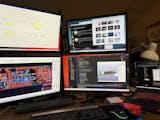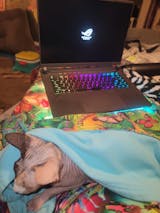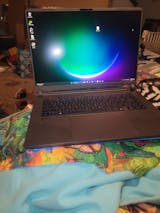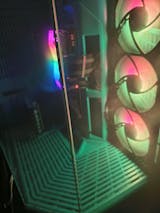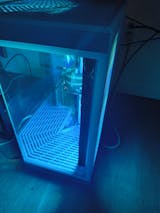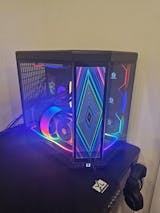The gaming business has grown exponentially in the last several years as a result of technological breakthroughs that produce ever more immersive experiences. But these developments also raise questions about energy usage, especially with relation to gaming PCs. The subject of how much energy gaming PCs consume is complex and involves a number of variables, including system specs, usage trends, and efficiency standards.
Hardware and Energy Consumption
One of the main factors affecting a gaming PC's energy usage is its hardware. Demanding games require high-performance components to work properly, such as powerful CPUs, GPUs, and many cooling fans. Generally speaking, these parts use more energy than those found in normal PCs.
- CPUs and GPUs: High-end graphics cards and multi-core CPUs are common features of contemporary gaming PCs. For example, the NVIDIA GeForce RTX 3080 is a high-end GPU that can use up to 320 watts of electricity while it is under load. Similarly, the design and usage of high-performance CPUs can vary from 95 to 250 watts.
- Cooling Systems: Effective cooling solutions are necessary to keep gaming PCs from overheating. These systems increase the total power usage since they include several fans or liquid cooling arrangements.
- Peripherals: Additional peripherals like RGB lighting, high-refresh-rate displays, and sophisticated sound systems are frequently used in gaming setups, and they all add to the overall energy consumption.
Usage Patterns
Energy usage is also influenced by the length of time spent using a gaming PC and the difficulty of the activities completed. Streamers or die-hard gamers that play for long stretches of time every day would inherently use more energy than average players.- Gaming Sessions: The CPU and GPU operate at maximum capacity during prolonged gaming sessions, which increases power consumption. Specifically, playing online multiplayer games can keep the parts operating at optimal efficiency for several hours.
- Idle and Background Processes: Gaming PCs can use a lot of power even when they're not being used for gaming because of updates, background activities, and game data downloads.
Energy Efficiency Measures
Energy-efficient techniques and technology can help reduce the environmental effect of gaming PCs, even with their high energy usage.
- Power Management Settings: Changing the power management settings can assist in lowering energy usage. Several gaming PCs let users configure power-saving modes for times when maximum performance is not required.
- Efficient Components: Selecting components that are energy-efficient can have a significant impact. For instance, greater energy efficiency is guaranteed by choosing a power supply unit (PSU) with an 80 Plus accreditation.
- Regular Maintenance: Reducing needless power usage may be achieved by keeping the system clean and well-maintained, which can also guarantee that components operate properly and prevent overheating.
- Software Optimization: Without noticeably affecting gameplay, software optimization of game settings can lessen the strain on hardware and save energy usage.
Comparative Perspective
Gaming PCs are some of the more energy-intensive home equipment when compared to other electronics. A gaming PC, for instance, may draw more electricity than a number of home appliances put together, especially when it's operating at maximum capacity. The real effect, however, varies based on the gear in question as well as personal usage.
Due in large part to their high-performance components and the nature of gaming itself, gaming PCs do use a lot of energy. Gamers may reduce the amount of energy used by their PCs, though, by using energy-efficient techniques, maintaining them properly, and using them mindfully. More energy-efficient systems and components should become available as technology develops, combining the need for high performance with environmental concerns.








